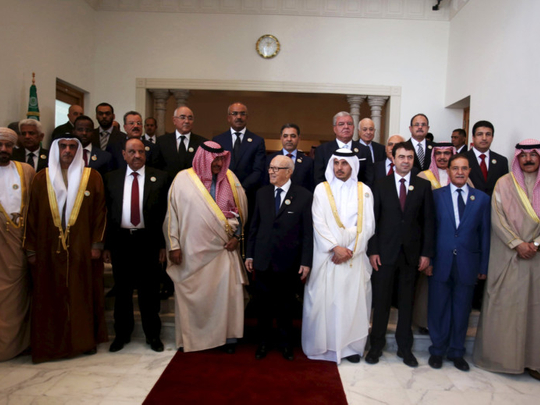
Beirut: Although Saudi Arabia and Bahrain, along with the UAE had previously designated the Lebanese militia, Hezbollah, a terrorist organisation, Wednesday’s alliance-wide label confirmed unity.
With Kuwait, Qatar and especially Oman joining their Gulf Cooperation Council (GCC) neighbours in confirming that Hezbollah activities were no longer acceptable, the conservative Arab Gulf monarchies sent a firm message to one and all: henceforth, GCC States will separate customary talk for calm and reconciliation with firmness to protect their interests.
Syria and Iran slammed the latest GCC policy, and while Lebanese politicians attempted to wiggle through by suggestion that Gulf monarchs could mimic European powers that separated Hezbollah’s military wing from its political attributes, neither Riyadh nor its partners were ready to play ball.
Simply stated, GCC States rejected the militia’s involvements in Iraq, Syria, Lebanon and, of course, Yemen, all of which were cauldrons that directly threatened the security and stability of Gulf societies.
Riyadh telegraphed that it would no longer engage in semantic displays of Arab solidarity where there were none.
The Syrian regime believes that is winning the civil war even if that meant destroying the country in the process. The war only turned in favor of the regime last year when Russia militarily intervened. Hezbollah and Iran have been involved prior to that but were still unable to turn the tides decidedly in Syrian president Bashar Al Assad’s favour.
In Tehran, the Deputy Foreign Minister Hossein Amir Abdollahian claimed Thursday that Hezbollah, one of Iran’s few Arab allies, is a bulwark against terrorism in the region while lashing out at GCC states.
The surprise move to designate Hezbollah as a terrorist group is the latest salvo in an intensifying battle for regional influence between the GCC and Iran, which saw Riyadh throw the ball in the Lebanese court, demanding that local politicians respond to Hezbollah’s defiances.
Saudi Arabia is unhappy that Lebanese politicians hid behind stale formulas that mummified what passed for domestic understandings and, in light of limited consequences to its $4 billion military aid suspension, contemplated fresh measures to further isolate the militia from the rest of Lebanon.
It is unclear what further measures Gulf States are ready to take, although several options are available, including banning agricultural imports, suspending air travel, imposing strict rules to wire funds out of GCC States to Lebanon—estimated at over US$7 billion per year—and cancelling residency permits to an estimated 750,000 Lebanese nationals who currently live and work on the Arabian Peninsula.
In addition to these bilateral initiatives, GCC States can also ramp up sanctions by persuading Arab States like Egypt to join in the designation of the militia as a terrorist organisation.
Egypt backed GCC positions in the past and might do so again, especially since Hezbollah operatives were caught in the Egyptian counter-terrorism dragnet in the past, with several militiamen tried in Egyptian courts.
At the 33rd Arab Interior Ministers Conference held in Tunisia on Wednesday, the Lebanese Interior Minister Nouhad Al Mashnouq refused the GCC label for Hezbollah and objected to the closing statement that condemned the militia’s practices. Only Iraq and Algeria voiced reservations over the declaration, which meant that the vast majority of Arab States sided with the GCC countries that, increasingly, separated those with revolutionary tendencies from those who sought to protect regional stability.












